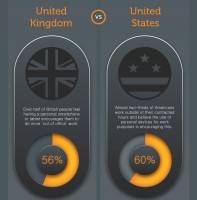July 4, 2013
UK workers mistrust more contented home-based colleagues
The debate which ensued following the Yahoo ban on home working earlier this year was as much as about the level of trust felt towards home workers as it was about the importance of collaboration within the workplace. The fact is that for the majority of home workers, day to day life is easier. No commuting, work where you please, no irritating colleagues and the freedom to nip out to the dentist, doctors or parents meeting without having to book a half day off. As a result, while home workers enjoy the best mental health and wellbeing of four groups in a survey of contact centre workers, office workers, home workers and mobile professional workers, their distance from the office-based working population breeds suspicion between them and everybody else. More →























June 21, 2013
Managing a work-life balance isn’t solely a women’s issue
by Sara Bean • Comment, Flexible working, Legal news, News, Workplace
Two reports published this week show that a cultural change is needed to stop employers assuming only female workers have families or other personal concerns that could impact on their workplace performance. A report into workplace equality by the Business, Innovation and Skills Committee (BIS) has called on the UK Government to do more to tackle female underrepresentation in sectors of the economy and to dispel the myth that any type of flexible working is a ‘women’s issue,’ problematic and cannot work. In the US a study by employee assistance providers Bensinger, DuPont and Associates (BDA) into stress has found that men are more than twice as likely to receive formal disciplinary action when the stress of a personal problem impacts on their work performance. More →